Understanding Self-Compassion as a Foundation for Emotional Growth
Emotional growth is a vital part of personal development, yet it often encounters obstacles like self-criticism, shame, and fear of failure. Central to overcoming these challenges is self-compassion—a practice rooted in treating oneself with kindness and understanding. By exploring the core components of self-compassion and its scientific underpinnings, we can appreciate how cultivating this attitude facilitates emotional resilience, promotes mental health, and supports continuous personal growth, especially during life's transitional phases.
Defining Self-Compassion and Its Connection to Well-Being
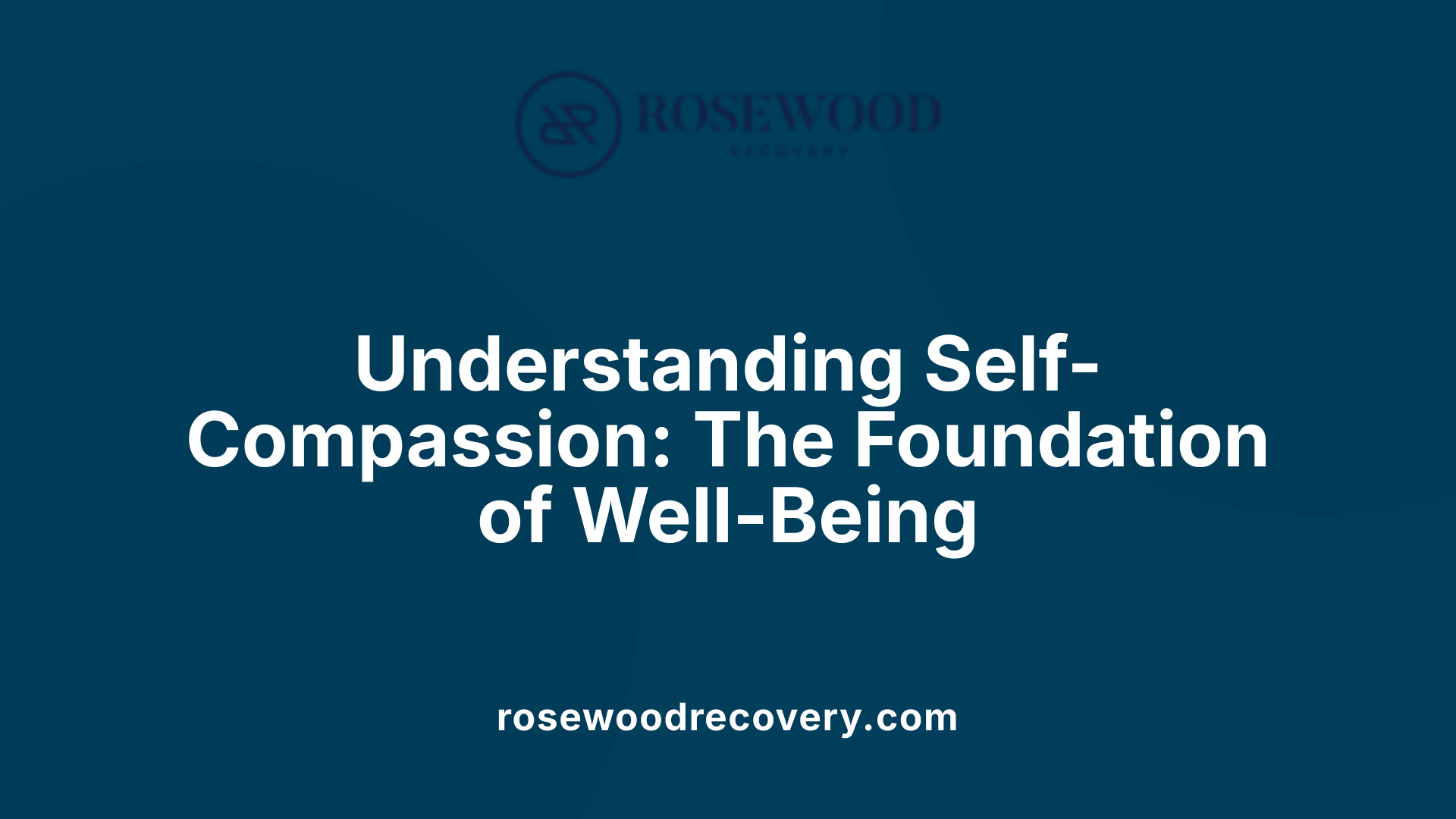 Self-compassion is the practice of treating oneself with kindness, understanding, and patience, especially during challenging times. It involves recognizing that suffering, mistakes, and imperfection are universal human experiences, which helps to foster a sense of connectedness rather than isolation.
Self-compassion is the practice of treating oneself with kindness, understanding, and patience, especially during challenging times. It involves recognizing that suffering, mistakes, and imperfection are universal human experiences, which helps to foster a sense of connectedness rather than isolation.
At its core, self-compassion consists of three main elements: self-kindness, mindfulness, and a sense of common humanity. Self-kindness refers to being gentle and caring towards oneself when faced with difficulties, rather than criticizing or judging oneself harshly. Mindfulness involves paying balanced attention to one’s feelings and thoughts without overidentification or avoidance, allowing for an objective acknowledgment of pain or failure. The sense of common humanity recognizes that everyone faces struggle and imperfection, which reduces feelings of isolation and shame.
Research indicates that practicing self-compassion significantly correlates with improved emotional well-being. It helps reduce negative self-talk, anxiety, and depression, while fostering positive emotions like happiness, resilience, and optimism. For adolescents, higher levels of self-compassion are linked to lower perceived stress, less negative affect, and a healthier self-image.
Overall, cultivating self-compassion supports emotional balance by encouraging adaptive coping strategies, such as acceptance and gratitude, and nurturing a stable foundation for mental health. Its focus on internal validation rather than external approval makes it a sustainable approach to emotional growth and resilience.
The Science Behind Self-Compassion’s Role in Emotional Regulation and Mental Health
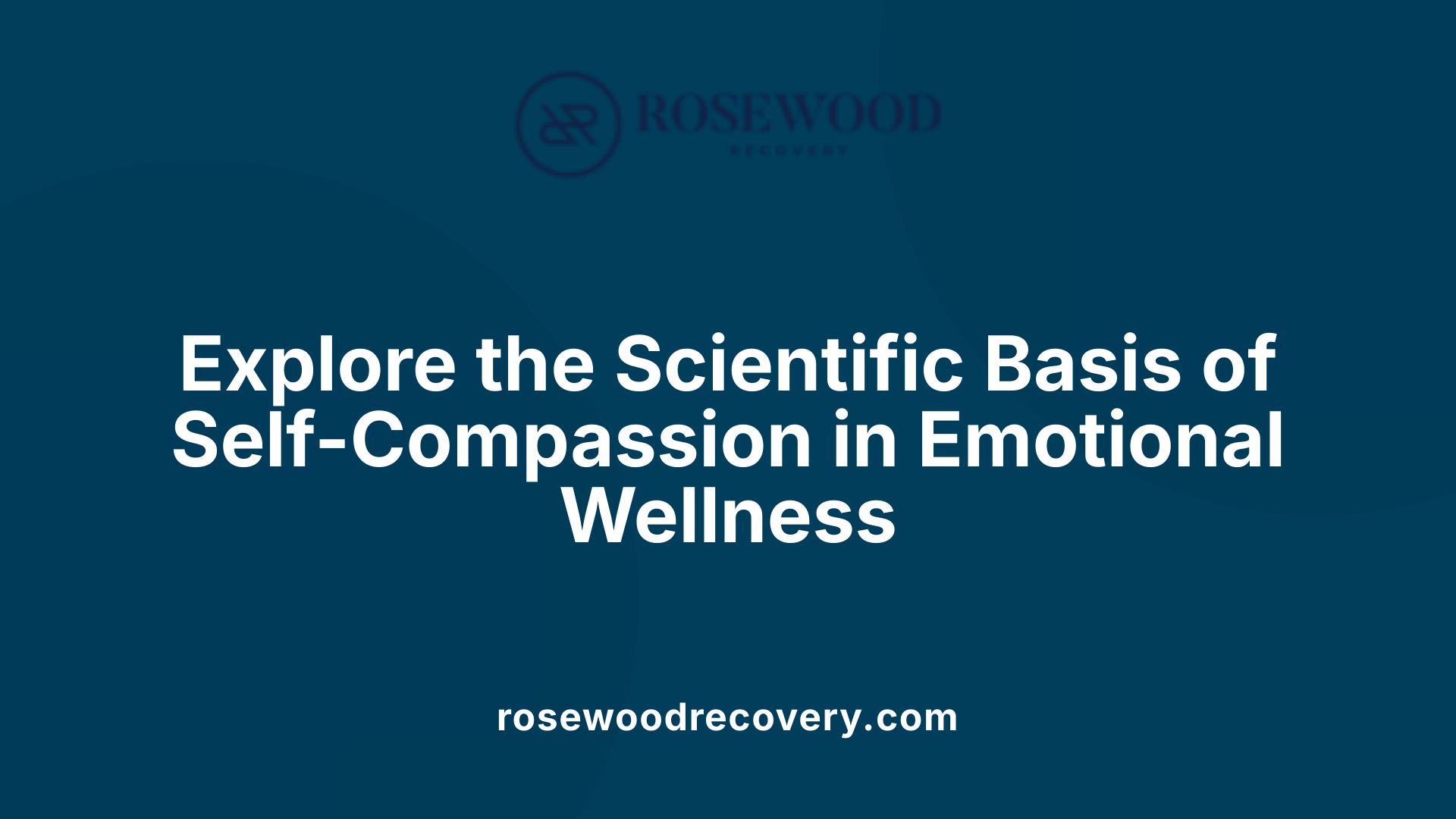
What is the scientific understanding of self-compassion's role in emotional regulation?
Self-compassion is increasingly recognized by researchers as a vital element in managing emotions effectively. It involves responding to our own suffering with kindness, recognizing our shared human experience, and maintaining mindful awareness of our feelings. This approach helps individuals tolerate negative emotions rather than avoiding or suppressing them.
Empirical studies show that self-compassion supports emotional regulation by encouraging adaptive strategies like acceptance, cognitive reappraisal, and self-support. Conversely, it diminishes maladaptive responses such as avoidance, rumination, and overidentification with negative feelings. When people practice self-kindness and mindfulness, they can better accept emotional pain and respond to setbacks with resilience. This fosters a healthier mental state by preventing emotional overwhelm and enhancing psychological flexibility.
Research has demonstrated that individuals with higher levels of self-compassion tend to have better psychological wellbeing, with lower levels of anxiety, depression, and stress. They also exhibit improved skills in reappraising negative thoughts and managing negative self-talk. Physiologically, self-compassionate responses are associated with increased vagally mediated heart rate variability—an indicator of better parasympathetic nervous system activity—which supports calmness and emotional balance.
In summary, scientific insights confirm that self-compassion acts as a protective psychological factor. It promotes resilience by helping us accept and process emotions healthily, which is fundamental in maintaining mental health and emotional stability.
Practical Methods to Cultivate Self-Compassion Daily
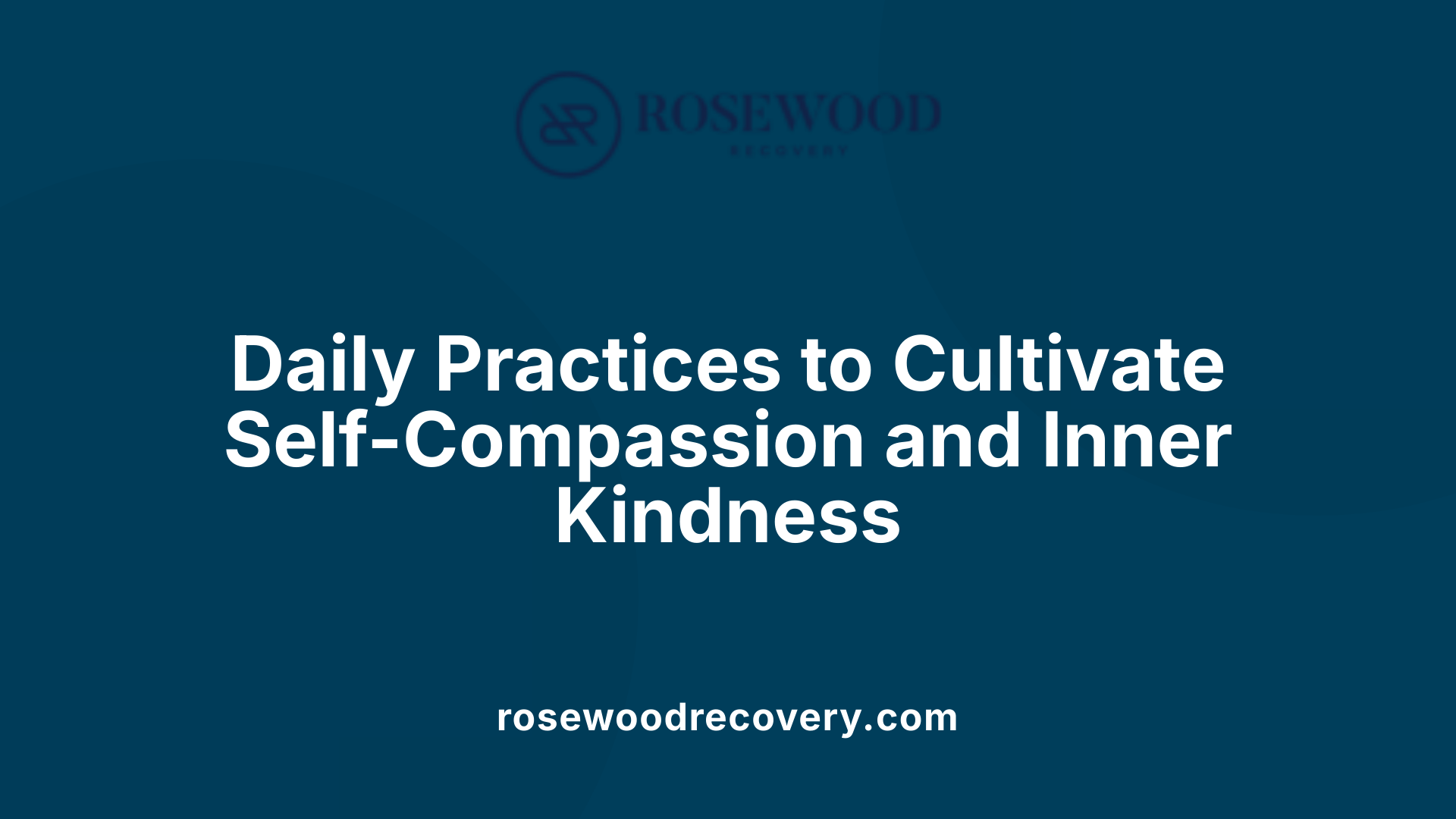
How can individuals cultivate self-compassion in their daily lives?
Building self-compassion is a gradual process that can be integrated into everyday routines. One effective approach is practicing mindfulness—being present and fully aware of your feelings without judgment. Mindfulness helps you recognize when you are experiencing difficulty and accept it as part of the shared human condition.
Self-kindness exercises are also vital. Speaking to oneself with gentle, caring words or writing supportive letters can nurture a more compassionate inner voice. These practices encourage a caring attitude toward oneself, especially during setbacks or moments of vulnerability.
Challenging negative self-talk is another crucial step. Recognizing and reframing harsh judgments with understanding and positive thoughts promotes a healthier self-view. For instance, replacing
The Impact of Self-Compassion on Personal Growth and Overcoming Challenges
What role does self-compassion play in personal growth and emotional development?
Self-compassion significantly influences personal growth and emotional well-being by fostering a kind and understanding attitude toward oneself, especially during difficult times or after setbacks. It involves three main components: self-kindness, mindfulness, and a sense of shared humanity. Practicing self-kindness means offering oneself gentle care and understanding, much like how one would treat a close friend in distress.
Mindfulness allows individuals to acknowledge their painful feelings and thoughts openly without overidentification or judgment, creating mental space for healing. Recognizing common humanity reminds us that suffering and imperfection are universal experiences, reducing feelings of isolation and shame. This perspective helps build emotional resilience and encourages a growth mindset.
Research shows that self-compassion reduces negative emotions such as anxiety, self-criticism, and fear, which often hinder personal development. Instead, it promotes emotional stability, making it easier to learn from mistakes and adapt. Self-compassionate individuals are more motivated to pursue intrinsic goals—they are less driven by fear or shame and more by curiosity and care.
Importantly, self-compassion supports mental health by activating the brain's relaxation responses, helping regulate mood, and enabling better recovery from stress and trauma. It also encourages healthier interpersonal relationships by fostering empathy and genuine connection.
The role of self-kindness and growth mindset during setbacks
When facing failures or setbacks, self-kindness becomes particularly vital. Instead of harshly criticizing themselves, individuals practicing self-compassion respond with understanding and patience. This approach not only alleviates feelings of shame but also helps in recognizing that mistakes are natural and shared human experiences.
Supporting a growth mindset, self-compassion motivates individuals to see challenges as opportunities for growth rather than as threats. It encourages perseverance, resilience, and learning—traits essential for personal development.
Sustained self-compassion practice, through techniques like mindful self-talk or compassionate writing, can help embed these attitudes into daily life. Over time, this nurtures emotional intelligence, enhances motivation, and fosters a stable, authentic sense of self—key ingredients for ongoing personal growth.
| Aspect | How It Supports Growth | Examples/Practices |
|---|---|---|
| Self-kindness | Reduces self-criticism, increases resilience | Gentle self-talk, compassionate self-acceptance |
| Growth mindset | Promotes effort and perseverance | Reframing setbacks as learning opportunities |
| Mindfulness | Enhances emotional regulation, presence | Meditation, mindful awareness exercises |
| Common humanity | Decreases feelings of isolation, fosters connection | Sharing struggles, recognizing shared human experiences |
By cultivating self-compassion, individuals can navigate life's challenges with a healthier mindset, turning setbacks into opportunities for growth and emotional maturity.
Understanding Self-Compassion’s Role in Transforming Emotional Responses
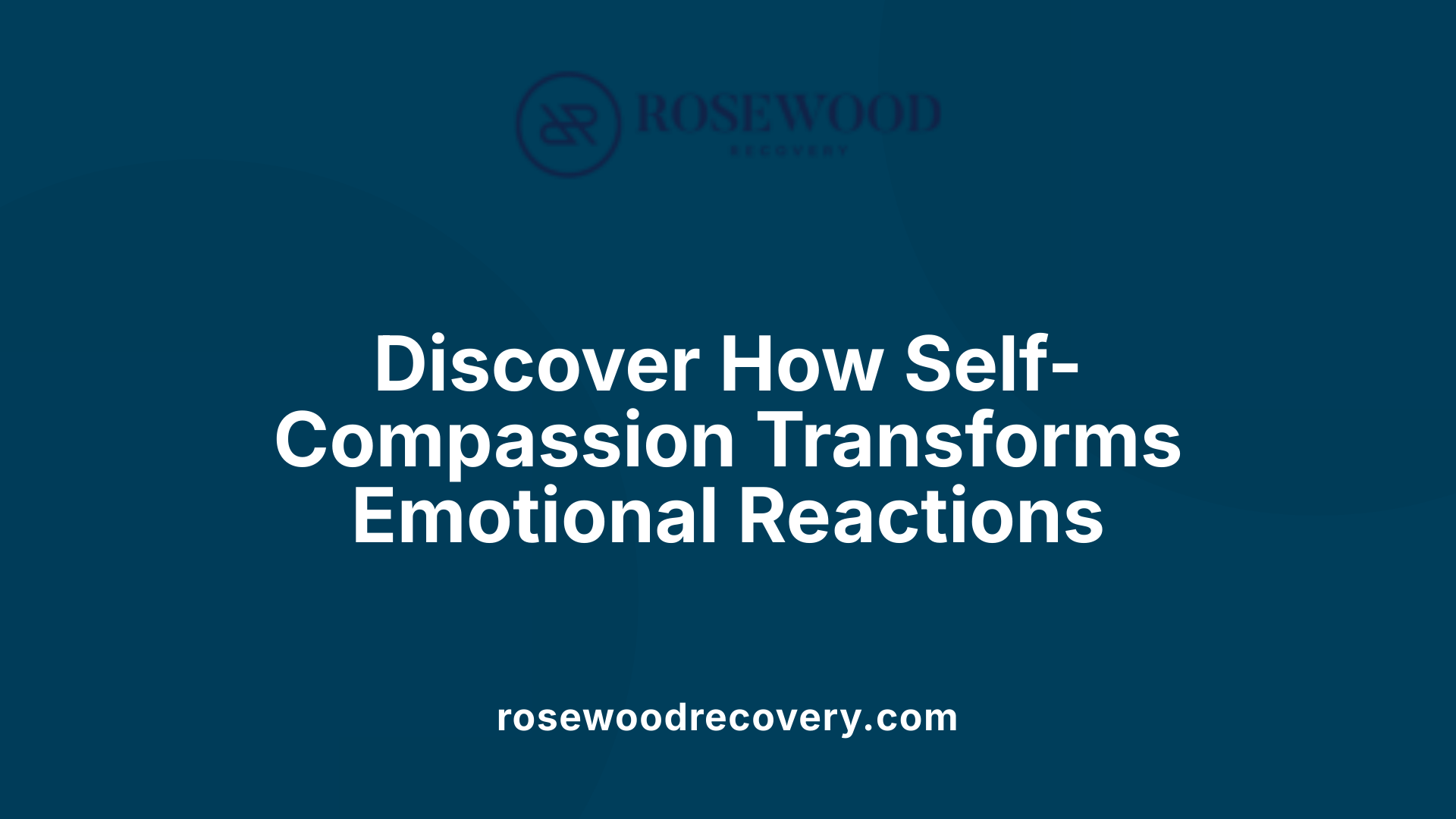
How does self-compassion influence emotional reactions?
Self-compassion significantly shapes how we respond to emotional challenges. It involves treating oneself with kindness and understanding during times of pain or failure, recognizing that suffering is a shared human experience, and maintaining mindful awareness of difficult feelings. Practicing self-compassion reduces negative emotions such as fear, anger, anxiety, and depression. This approach fosters emotional resilience by enabling individuals to accept their feelings without judgment and respond in a more balanced and supportive manner.
Research shows that self-compassion activates neural pathways associated with comfort and safety, which aids in emotional recovery. It encourages internal dialogue that counters negative self-talk and promotes positive self-reflection. For example, when faced with setbacks, self-compassionate people are more likely to approach their mistakes with curiosity and care rather than criticism. Such attitudes lead to healthier emotion regulation strategies like cognitive reappraisal and acceptance, helping reduce rumination and emotional upheaval.
This practice not only helps manage immediate emotional responses but also enhances long-term psychological wellbeing. It fosters a growth mindset where effort and learning are valued over perfection, enabling individuals to recover from failures and setbacks more effectively. Overall, self-compassion acts as a buffer against emotional suffering, replacing destructive patterns with adaptive and nurturing responses.
What is the scientific understanding of self-compassion's role in emotional regulation?
Scientifically, self-compassion is seen as a vital element in emotional regulation. It helps individuals tolerate difficult emotions by calming neural circuits that govern stress and threat responses, and activating mechanisms associated with safety and social bonding. Studies utilizing physiological measures, such as heart rate variability, have shown that self-compassion training increases parasympathetic nervous system activity, which promotes relaxation and alertness.
Neuroscientific research indicates that the constructs of mindfulness, common humanity, and self-kindness collectively enhance one’s ability to recognize and accept emotional states. This acceptance prevents excessive emotional escalation and supports quicker recovery. Neuroimaging studies reveal that self-compassion activates brain regions involved in emotional regulation, such as the prefrontal cortex, while dampening activity in areas linked to fear and distress, like the amygdala.
Practicing self-compassion through methods like loving-kindness meditation or mindful reflection can foster neuroplasticity—creating new neural pathways that strengthen adaptive emotional responses. This leads to more resilient mental health, with reduced symptoms of anxiety, depression, and stress.
More about the research
Exploring the neuroscience behind self-compassion shows its effectiveness in creating emotional safety and stability. Continued research into how these neural changes translate into real-world resilience and wellbeing underscores the importance of cultivating self-compassion as a core emotional skill.
Self-Compassion as a Pillar for Resilience and Long-Term Mental Wellness
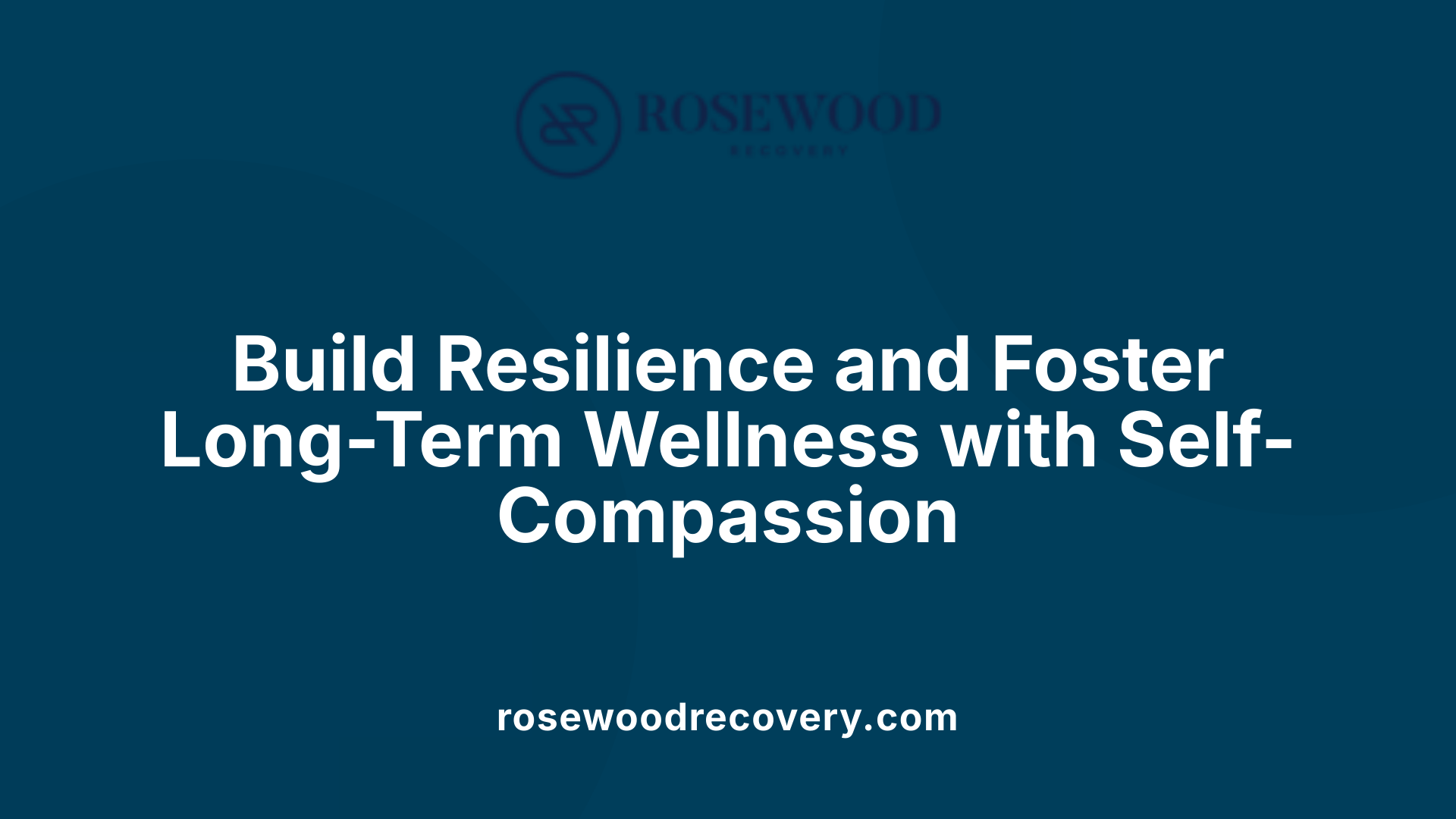
How does self-compassion support resilience and recovery?
Self-compassion plays a vital role in fostering resilience, which is the ability to bounce back from setbacks and adversity. When individuals treat themselves with kindness and understanding during difficult moments, they reduce harmful self-criticism and shame that often hinder recovery.
Practicing self-kindness allows people to approach their mistakes and failures as part of the shared human experience, fostering emotional resilience. Mindfulness helps regulate emotional responses by promoting acceptance of painful feelings without overidentification or avoidance. This balanced internal dialogue counters negative thoughts, activates relaxation responses, and supports adaptive emotion regulation strategies such as acceptance and problem-solving.
Research shows that self-compassionate individuals are better equipped to recover from emotional setbacks, trauma, and depression. Their neural pathways are more flexible, enabling them to process stress with less upheaval and greater stability. Such individuals often exhibit increased optimism and motivation for growth, which bolsters long-term mental wellness.
What is the role of self-compassion during difficult or transitional life phases?
During challenging or transitional periods — such as loss, career changes, or adolescence — self-compassion becomes especially crucial. These phases often bring feelings of uncertainty, vulnerability, and self-doubt.
By cultivating a compassionate inner voice, individuals are better able to notice their suffering without harsh judgment. Recognizing common humanity reminds them that struggle is a shared part of life, reducing feelings of isolation. Mindfulness helps in accepting these emotional states with openness, preventing overreactivity or suppression.
This compassionate approach supports emotional processing, helping individuals navigate change without becoming overwhelmed. It encourages self-care practices like gentle self-talk, seeking support, and engaging in activities that foster a sense of safety. Ultimately, self-compassion during transitions enhances well-being, builds resilience, and helps individuals meet life's challenges with greater self-acceptance and growth potential.
| Aspect | Description | Benefits |
|---|---|---|
| Resilience Support | Encourages adaptive emotion regulation, promotes positive outlook | Faster recovery, lower negative emotions |
| Transition Phase | Fosters acceptance of new realities, reduces isolation | Better emotional stability, growth |
| Long-term Wellness | Builds a stable self-relationship, promotes intrinsic motivation | Sustained mental health, increased life satisfaction |
Embracing Self-Compassion for Sustainable Emotional Development
Incorporating self-compassion into daily life creates a compassionate internal environment that fuels emotional growth and resilience. As evidence shows, this practice reduces negative emotions, promotes psychological stability, and facilitates personal development. Recognizing that setbacks and imperfections are universal and temporary enables a more balanced view of oneself and the world. Developing this skill not only supports individual well-being but also fosters healthier relationships and communities. Ultimately, embracing self-compassion during every phase of life empowers individuals to navigate challenges with grace, learn from adversity, and cultivate a resilient, emotionally mature self capable of sustained growth.
References
- Why Self-Compassion Is Essential for Mental Health
- The Role of Self-Compassion in Development: A Healthier Way to ...
- The Science of Self-Compassion: How Being Kind to Oneself ...
- Why Self-Compassion Is The Key To Personal Growth
- Self-Kindness Is Not Selfish—It's Compassion in Action
- Why Self-Compassion Isn't Touchy-Feely (and Why It's a Crucial ...
- Be Kinder to Yourself: The Power of Practicing Self-Compassion
- What Does Self-Compassion Really Mean?
- The influence of self-compassion on emotional well-being among ...
- How to Practice Self-compassion for Resilience and Well-being




